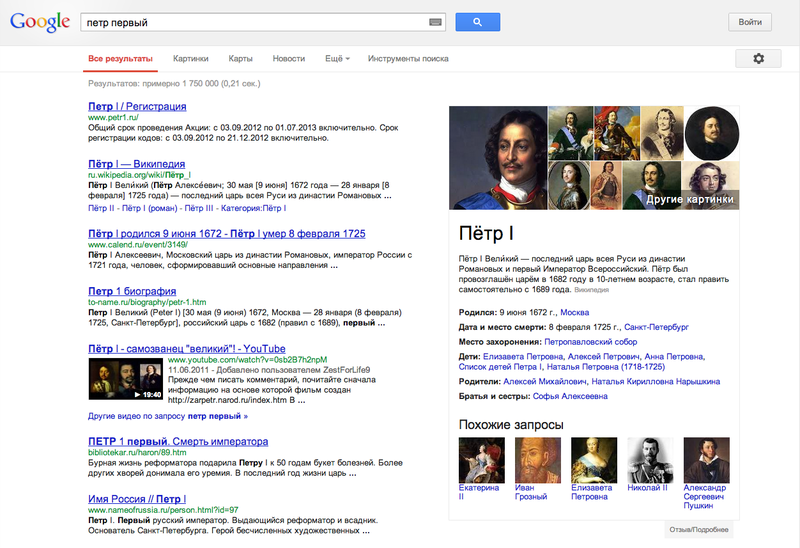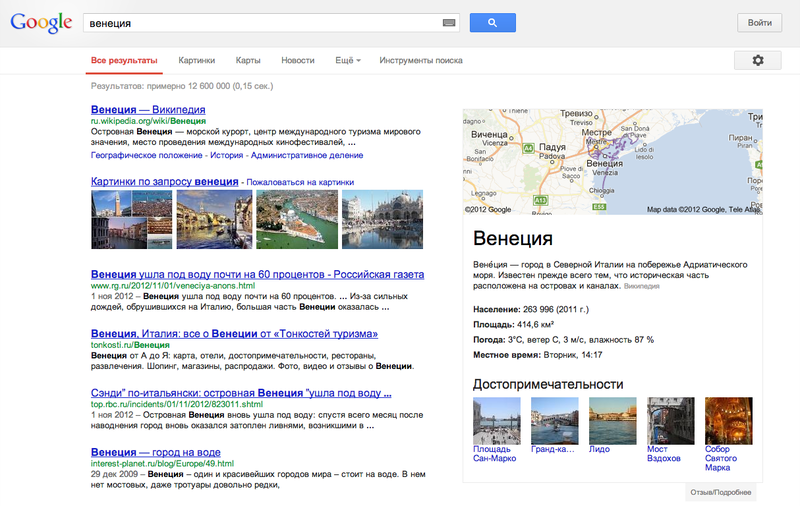Google launches "knowledge Graph" for Russian-speaking users

Today in the Russian-speaking blog of the company, Google released the news that the recent innovation Knowledge Graph adds support for more languages namely Russian, German, French, Portuguese, Italian, Spanish and Japanese. A company representative said that in the weeks feature is available to all, and results will change.
The count helps when searching for information queries, such as events, people, animals, the world, science, etc. Search will prompt the user to Refine the query, which will change the information in the search result. This is another step on the way to "smart search" that Google is trying to implement with this service.
Because the search engine people almost all over the world, the number of concepts it contains and recognizes the knowledge graph has been increased to 570 million, and the number of various facts and relationships exceeded 18 billion.
The project has already discussed early and I describe it in detail I will not. To cite just a few examples of search results using the knowledge graph:
— when prompted, for example "Peter I" on the right side you will see important information about this historical figure. Important dates, short bio (with a link on wikipedia), information on relatives, as well as other events and phenomena in history.

— when prompted to "Venice" in the right corner will display information about the district, where the city is located, a brief historical background, local time, climate, and attractions that we visit. As stated above when you go to the attraction, it will open its advanced page, if the information about it is available in the database.

The feature is currently accessible to a small number of users, but as stated above, will soon be available to all Russian-speaking users.
A more complete description of the Graph of knowledge you can see on it official page.
Комментарии
Отправить комментарий